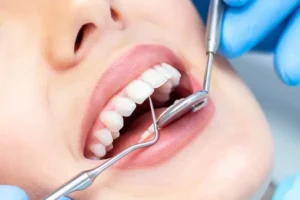
Toothache can range from a mild annoyance to excruciating pain, significantly impacting daily life. This article explores various methods for managing toothache, from home remedies to professional dental care. It’s crucial to remember that while home care can offer temporary relief, persistent or severe toothache necessitates a visit to the dentist to address the underlying cause.
Understanding the Causes of Toothache:
Toothache arises from various dental issues, including:
- Tooth Decay (Caries): This is the most common cause, where bacteria erode the enamel and dentin, exposing the sensitive nerves.
- Gum Disease (Gingivitis/Periodontitis): Inflammation and infection of the gums can affect the supporting structures of the teeth, leading to pain.
- Dental Abscess: A pocket of pus caused by a bacterial infection, often at the root of a tooth. This is a serious condition requiring prompt treatment.
- Cracked or Broken Tooth: Damage to a tooth can expose the nerve endings, causing significant pain.
- Impacted Tooth: A tooth that fails to erupt properly, often wisdom teeth, can cause pain and inflammation.
- Temporomandibular Joint (TMJ) Disorders: Problems with the jaw joint can sometimes manifest as toothache-like pain.
- Sinus Infections: Inflammation of the sinuses can sometimes cause referred pain in the upper teeth.
Home Remedies for Temporary Relief:
These methods can provide temporary relief from mild toothache, but they are not a substitute for professional dental care:
- Over-the-Counter Pain Relievers: Ibuprofen (Advil, Motrin) or acetaminophen (Tylenol) can help reduce pain and inflammation. Follow the recommended dosage on the packaging.
- Cold Compress: Applying a cold compress to the affected area for 15-20 minutes at a time, several times a day, can constrict blood vessels and reduce swelling.
- Salt Water Rinse: Gargling with warm salt water can help dislodge debris and reduce inflammation in the mouth. Dissolve about half a teaspoon of salt in a cup of warm water.
- Elevate Your Head: Keeping your head elevated, especially when lying down, can help reduce throbbing pain.
- Clove Oil: Clove oil contains eugenol, a natural anesthetic. Dabbing a small amount of clove oil onto a cotton ball and applying it to the affected tooth can provide temporary relief. However, be careful not to swallow it.
- Peppermint Tea Bags: Peppermint has numbing properties. Steep a peppermint tea bag, let it cool slightly, and then apply it to the affected area. Alternatively, you can chill the used tea bag and apply it cold.
What to Do to Reduce Toothache:
It’s crucial to seek professional dental care if you experience any of the following:
- Severe or Throbbing Pain: Pain that is intense and doesn’t respond to home remedies.
- Pain Lasting More Than Two Days: Persistent pain suggests a more serious underlying issue.
- Swelling in the Face or Jaw: This could indicate a dental abscess, which requires immediate treatment.
- Fever: A fever often accompanies a dental infection.
- Difficulty Swallowing: This could be a sign of a spreading infection.
- Pain When Opening Your Mouth Wide: This might indicate a problem with the jaw joint or a dental abscess.
- Bleeding Gums: While some minor gum bleeding can occur, persistent or excessive bleeding can be a sign of gum disease.
Preventing Toothache:
Maintaining good oral hygiene is essential for preventing toothache: Stay tuned for the article What to Do to Reduce Toothache.
- Brush Your Teeth Twice a Day: Use fluoride toothpaste and a soft-bristled toothbrush.
- Floss Daily: Flossing removes plaque and food particles from between your teeth, where your toothbrush can’t reach.
- Regular Dental Checkups and Cleanings: Professional cleanings remove tartar buildup and allow your dentist to detect and treat dental problems early.
- Limit Sugary Foods and Drinks: Sugar feeds bacteria in the mouth, contributing to tooth decay.
- Eat a Balanced Diet: A healthy diet supports overall oral health.
Avoid Smoking: Smoking significantly increases the risk of gum disease and other oral health problems. Click to see dental health services.